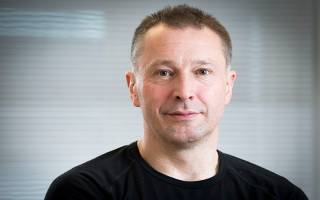Reader in Gene Transfer Technology and Acting Director of the EGA Institute for Women's Health
What is your role and what does it involve?

I develop gene therapy for early onset childhood disorders. I write grants, do some practical work in the laboratory, write papers, have discussions with colleagues and collaborators, and present our work at patient conferences and sometimes to the wider public.
What attracted you to UCL?
Already the majority of my collaborators were at UCL (rather than Imperial) so UCL was a natural home. The best translational gene therapy was coming out of UCL so it was also the best place to be doing the science that I love.
What is the best aspect about working at UCL?
I feel strongly that we should nurture the talent of early career researchers and provide an energising and inspirational environment. I believe that the attrition of researchers at the postdoctoral stage of their careers contributes to the existing imbalance in fair gender and ethnic representation. At the most senior levels at UCL there is a clear intention to address these inequities. I am proud to have the support of amazing colleagues in establishing mechanisms for the continued mentorship and career support for early career researchers.
I’m also proud to be working with incredibly intelligent and dedicated colleagues, many relatively early in their careers and who actually give me hope and enthusiasm.
What does it feel like to be part of the UCL community?
To be honest, I haven’t yet found out how far the UCL community extends. I keep stumbling upon new parts of UCL that I didn’t even realise existed. And I guess that serves as a useful metaphor for how I feel about the community that already exists – I’m in constant state of learning and amazement. I’m so lucky to find myself in this situation.
What are your future career aspirations?
I am lucky to have been working it the field of gene therapy for many years. The field has at last started to turn the big corner into translational medicine, yet these are really the first baby-steps in the grander scheme of things. I would like to see all our projects, and more we haven’t even started, to become standard clinical treatments. My colleagues and I specialise in gene therapy for early onset childhood diseases and we are approaching a situation where once untreatable, and even fatal, diseases may be curable with a single injection. Saving people’s lives and improving their health – I’ve aspired to that my whole career.
 Close
Close

